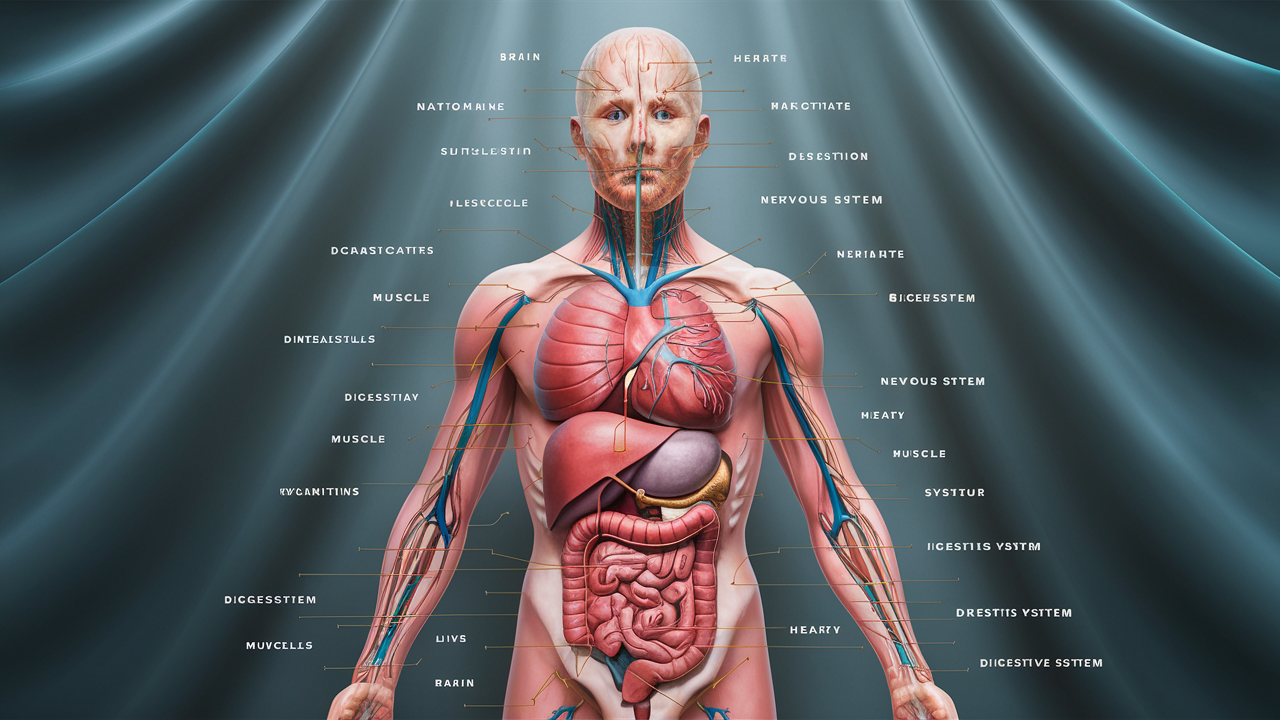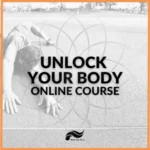Table of Contents
ToggleHow to Unlocking Your Potential
Understanding the Role of Bodily Autonomy in Personal Development
Introduction: Exploring the Intersection of Body and Self
In the process of growing personally, it’s important to grasp how our bodies work. Our bodies aren’t just shells we live in; they’re a big part of who we are. By learning more about how our bodies function, we can find new ways to grow and learn about ourselves. This journey helps us appreciate our bodily autonomy, or our right to make decisions about our own bodies.
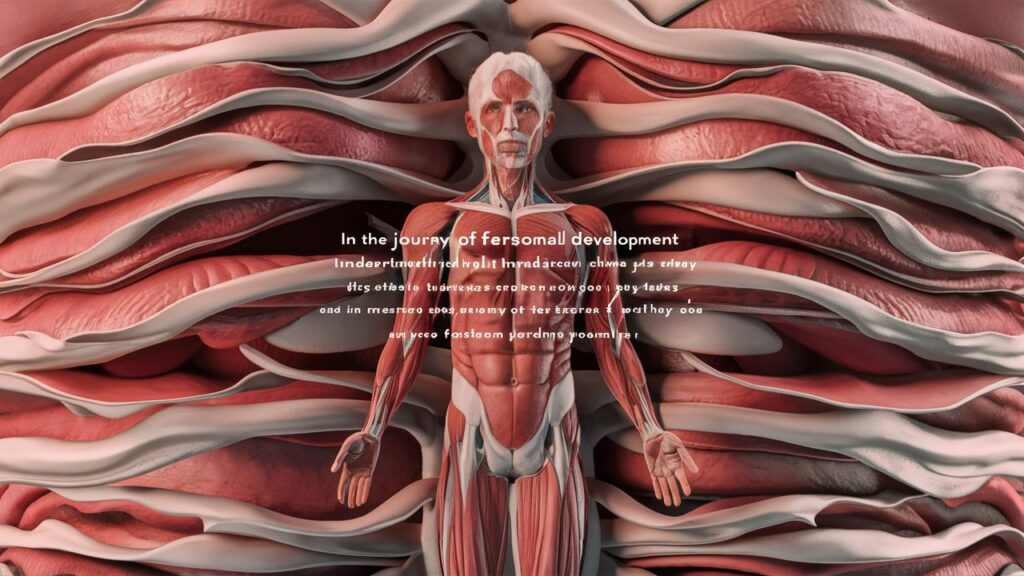
The Foundation of Self: Bodily autonomy as the Basis of Identity
The center of who we are is our body. It’s like the foundation of our identity. Everything about how our body is built, like how our spine curves or our heartbeat, affects who we are. Understanding how important our body is helps us accept ourselves completely. It helps us realize the importance of making our own choices about our bodies, called bodily autonomy.
The Foundation of Self: Bodily Autonomy as the Basis of Identity
Our bodies are significant. They’re like the foundation of who we are. Everything about them, like how our spine curves or our heartbeat, shapes us. Understanding how important our body is helps us accept ourselves completely. It also helps us realize the importance of making our own choices about our bodies, which is called bodily autonomy.
Empowerment through Understanding: Claiming Bodily Autonomy
Having control over our own bodies is really important. It’s like the foundation of being in charge of ourselves. We should be able to make choices about our bodies without anyone forcing us or trying to control us. When we understand how our bodies work, we give ourselves the power to make decisions about them. This power doesn’t just affect our bodies; it affects every part of our lives. This idea of having control over our bodies is called bodily autonomy.
Self-Reflection and Bodily Awareness: Nurturing the Mind-Body Connection
In our busy lives, we often forget to pay attention to our bodies. We might focus too much on our goals or what others expect from us. But real growth means being mindful of our bodies. By doing things like meditation, yoga, and body scanning, we can learn more about our bodies and what they need. This helps us connect our minds and bodies better, so we can live more authentically. And it reminds us that we have the right to make choices about our own bodies, called bodily autonomy.
Embracing Bodily Anatomy as a Pathway to Personal Growth
Understanding our bodies is more than just science; it’s a path to learning about ourselves. When we delve into the details of how our bodies work, we find ways to become stronger and change for the better. By taking control of our bodies and understanding our bodily autonomy, we open doors to a more meaningful and genuine life.
Exploring the Human Body: A Comprehensive Overview
Embarking on a Journey of Self-Discovery
Starting to learn about the human body is like diving into a deep ocean full of secrets waiting to be discovered. In this piece, we’ll dive deep into exploring bodily anatomy, trying to understand how it works and why it’s important for personal growth. Along the way, we’ll talk about bodily autonomy, which is our right to make decisions about our own bodies.
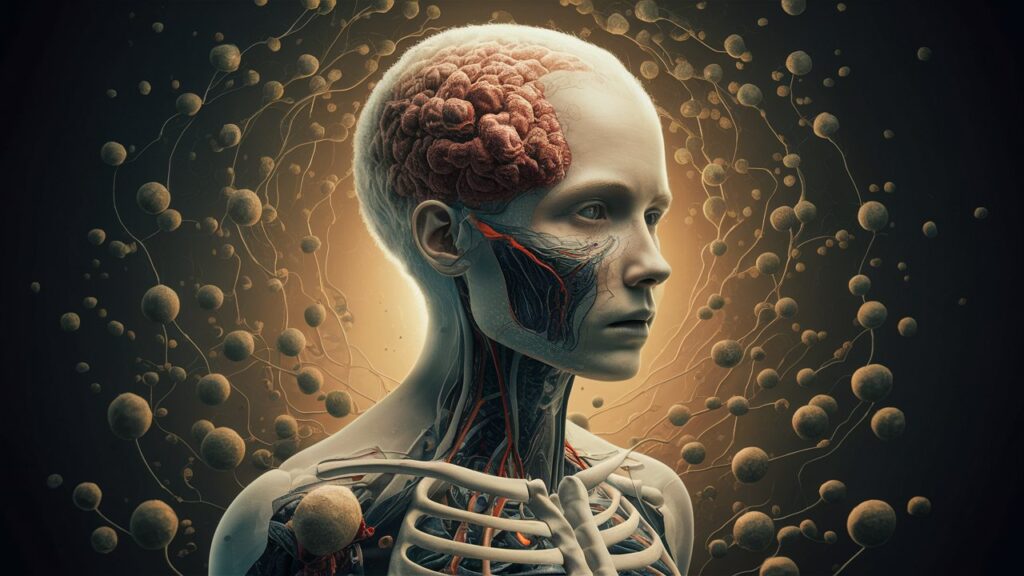
The Complexity of Bodily Autonomy: Unraveling the Mysteries Within
When we first look at the human body, it might seem simple. But if we take a closer look, we see how complex it really is. From tiny cells to big organs and systems, our bodies are amazing creations of nature. By understanding how they work, we can appreciate just how incredible they are. This understanding also helps us recognize the importance of having control over our own bodies, known as bodily autonomy.
The Interconnectedness of Body and Mind: Understanding the Mind-Body Connection
Understanding how our bodies and minds are connected is really important. They’re not separate; they work together in a deep way. When we learn about this connection, we see how our physical health affects our mental well-being, and the other way around. It helps us see the importance of making our own choices about our bodies, which is called bodily autonomy.
Empowering Individuals through Knowledge: The Importance of Bodily Autonomy
The idea of bodily autonomy is really important when we talk about our bodies. It means we have the right to make decisions about our own bodies. Sometimes, other people or things try to control or influence our bodies, but taking back control is powerful. When we learn about our bodies and what they can do, we’re standing up for our right to make our own choices.
Navigating the Complexity of Gender: Embracing Diversity and Inclusivity
When we talk about our bodies, we have to understand that people have different genders and it’s not simple. Bodily autonomy means we can choose how we express and identify our gender. It’s not just about our physical bodies; it’s about our rights to be who we are. When we respect and include everyone’s experiences and identities in conversations about our bodies, we’re honoring everyone’s uniqueness.
Empowering Individuals through Understanding
Exploring how our bodies work isn’t just about science. It’s a way to learn about ourselves and feel stronger. When we understand our bodies and respect our right to make choices about them, we become more confident. By being curious and kind about our bodies, we help create a world where everyone can be themselves without feeling sorry.
Mindful Body Awareness: Techniques for Connecting with Your Physical Self
Cultivating Presence in the Here and Now
In a busy world, it’s important to pay attention to our bodies. This article will talk about ways to connect more deeply with our bodies. By doing this, we can feel more in control of our bodies and live more authentically.

The Practice of Mindfulness: Cultivating Present-Moment Awareness
At the heart of mindful body awareness lies the practice of mindfulness – the intentional cultivation of present-moment awareness. By directing our attention to the sensations, movements, and rhythms of our bodies, we can anchor ourselves in the present moment and cultivate a deeper appreciation for our physical selves. Through practices such as mindful breathing, body scanning, and gentle movement, we can develop a profound sense of connection with our bodies and the world around us.
Honoring the Wisdom of the Body: Listening to Inner Signals and Cues
Our bodies are super smart. They’re always telling us what they need and how they feel. But sometimes, we’re so busy that we don’t listen to them. If we pay attention and be mindful of our bodies, we can understand them better. We should respect their intelligence and take care of them with kindness. Whether it’s a small pain or a burst of happiness, every feeling teaches us more about ourselves and helps us make choices about our bodies, which is called bodily autonomy.
Cultivating Self-Compassion: Embracing Imperfection and Vulnerability
As we learn to pay attention to our bodies, it’s important to be kind to ourselves – especially when things get tough. Bodily autonomy isn’t about being perfectly healthy or looking a certain way. It’s about accepting that we’re not perfect and that it’s okay to be vulnerable. When we treat ourselves with care and understanding, we make it easier to explore and improve without feeling judged or criticized.
Empowerment through Movement: Expressing Freedom and Authenticity
Movement is a powerful form of self-expression, allowing us to tap into our innate sense of freedom and authenticity. Whether it’s through dance, yoga, or simply taking a leisurely stroll, movement offers a gateway to reconnecting with our bodies and reclaiming bodily autonomy. By allowing ourselves to move with grace and fluidity, we embody the principles of empowerment and self-determination, honoring the unique capabilities and desires of our physical selves.
The Journey of Mindful Body Awareness
Becoming more aware of our bodies is a powerful way to feel in control and make choices for ourselves. We can do this by paying attention to how we feel in the moment, being kind to ourselves, and expressing ourselves through movement. This helps us grow, heal, and learn more about who we are. As we practice this mindful body awareness, let’s aim to feel more connected to ourselves and the world, living with purpose, being true to ourselves, and showing kindness to others.
Strengthening Mental Resilience through Bodily Anatomy
The Intersection of Physical and Mental Well-being
When we talk about mental strength, we shouldn’t overlook how our bodies play a big role. This article dives into how taking care of our bodies and respecting our right to make decisions about them can help us become stronger when life gets tough. It gives us the power to handle hard times with dignity and power.
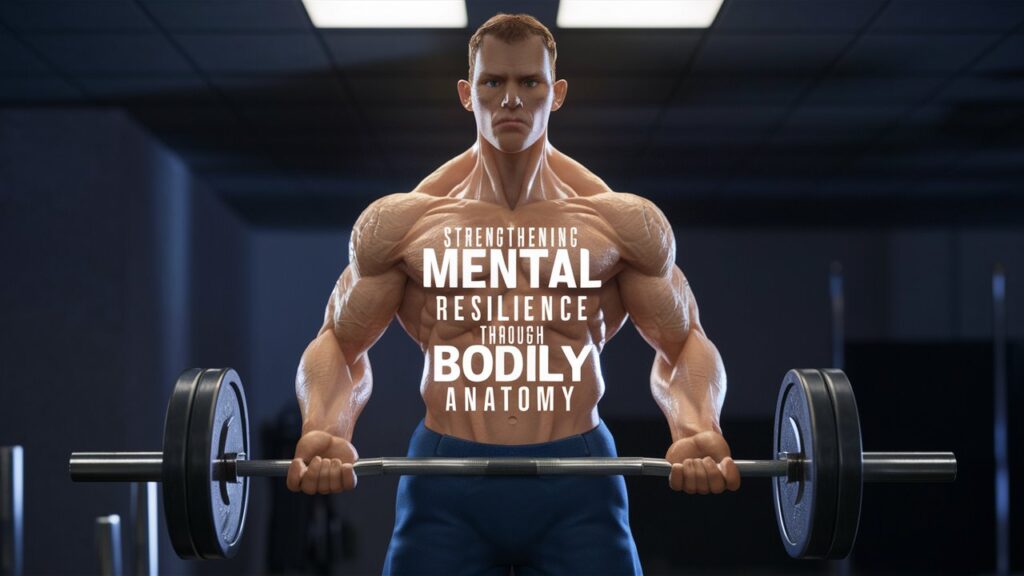
The Body-Mind Connection: How Bodily Autonomy Impacts Mental Health
Having control over our bodies isn’t just about physical freedom. It’s also really important for our mental health and strength. Studies have found that people who feel like they have control over their bodies tend to feel better mentally and can handle tough situations more easily. When we understand and stand up for our bodily autonomy, we feel stronger and more in charge, which helps us deal with life’s ups and downs.
Stress Management Strategies Rooted in Bodily Autonomy
A crucial part of staying mentally strong is handling stress well. Bodily autonomy gives us lots of ways to deal with stress and feel better emotionally. Whether it’s taking deep breaths or relaxing our muscles step by step, there are many ways to use what our bodies can do to feel less tense and more peaceful. When we make these practices part of our everyday routines, we become stronger and more able to handle tough situations.
Physical Health and Mental Resilience: The Role of Exercise and Nutrition
Physical health is intrinsically linked to mental resilience, and bodily autonomy extends to the realm of exercise and nutrition. Regular physical activity not only strengthens our bodies but also releases endorphins – natural mood lifters that promote feelings of well-being and resilience. Similarly, nourishing our bodies with nutritious foods provides the fuel needed to support optimal brain function and emotional stability. By prioritizing exercise and nutrition as essential components of bodily autonomy, we can lay a strong foundation for mental resilience and well-being.
Empowerment through Self-Care Practices
At its core, bodily autonomy is about honoring and caring for our physical selves in ways that promote overall well-being. Self-care practices such as massage, mindfulness meditation, and adequate sleep are essential tools for nurturing bodily autonomy and strengthening mental resilience. By prioritizing self-care and carving out time to tend to our physical and emotional needs, we empower ourselves to face life’s challenges with courage and resilience.
Conclusion: Harnessing the Power of Bodily Autonomy for Mental Resilience
Harnessing the Power of Bodily Autonomy for Mental Resilience
Bodily autonomy is a powerful force for promoting mental resilience and well-being. By understanding the connection between bodily anatomy and mental health, practicing stress management techniques rooted in bodily autonomy, prioritizing physical health through exercise and nutrition, and embracing self-care practices, we can strengthen our resilience in the face of life’s challenges. As we cultivate a deeper sense of bodily autonomy, may we harness its power to navigate adversity with grace, strength, and resilience.
Nurturing Bodily Anatomy for Personal Growth
The Journey of Self-Discovery
Starting to grow personally means understanding and valuing our bodies. Let’s talk about how taking care of our own bodies helps us grow and feel stronger. It’s about accepting ourselves and feeling complete and real.
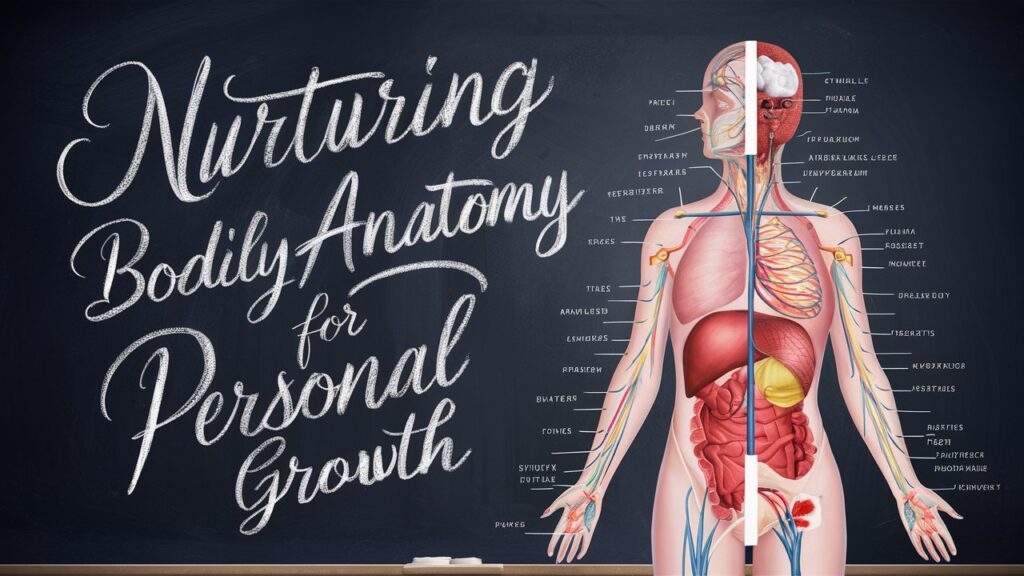
Holistic Health Practices: Integrating Bodily Autonomy into Daily Routines
The key to growing as a person is taking care of our whole selves – our body, mind, and spirit. Bodily autonomy is the starting point for this journey. It means we have the power to make choices that respect and take care of our bodies. When we include things like eating mindfully, staying active, and getting enough rest in our daily lives, we make room for personal growth and positive changes to happen.
Enhancing Performance: Leveraging Bodily Autonomy for Peak Potential
Bodily autonomy is not only about maintaining health and well-being but also about optimizing performance and potential. Whether in sports, academics, or professional endeavors, understanding and harnessing our bodily autonomy can lead to peak performance. By fueling our bodies with nutritious foods, engaging in regular exercise, and prioritizing self-care, we lay the groundwork for achieving our goals and realizing our fullest potential.
Exploring Boundaries and Consent: Respecting the Autonomy of Others
In discussions of bodily autonomy, it is essential to recognize and respect the autonomy of others. Boundaries and consent are integral aspects of bodily autonomy, and honoring them is crucial for fostering healthy relationships and communities. By advocating for bodily autonomy and consent in all areas of life, we create an environment where individuals feel empowered to assert their needs and boundaries, leading to greater personal growth and fulfillment for all.
Self-Expression and Authenticity: Embracing Diversity and Individuality
Bodily autonomy is not just about physical health; it is also about embracing diversity and individuality in all its forms. Each person’s body is unique, and honoring that diversity is essential for personal growth and self-expression. By celebrating our differences and embracing our individuality, we create a world where bodily autonomy is respected and valued, allowing each person to live authentically and fully express who they are.
Cultivating Bodily Autonomy for Personal Fulfillment
Nurturing bodily autonomy is a powerful catalyst for personal growth and fulfillment. By integrating holistic health practices into our daily routines, leveraging bodily autonomy for peak performance, respecting the autonomy of others, and embracing diversity and individuality, we create a foundation for personal growth and self-expression to flourish. As we cultivate a deeper understanding and appreciation of our bodily autonomy, may we unlock new possibilities for personal growth, fulfillment, and authenticity in our lives.
Transformative Practices for Bodily Autonomy
Embracing Empowerment through Practice
Methods that empower people to control their bodies help them feel stronger and more in charge. In this article, we’ll look at different ways to do this, so people can be true to themselves and fully embrace who they are.

Yoga and Meditation: Cultivating Harmony between Mind, Body, and Spirit
Yoga and meditation are powerful tools for cultivating bodily autonomy by fostering harmony between mind, body, and spirit. Through the practice of yoga asanas (poses) and mindfulness meditation, individuals can develop a deeper awareness of their physical sensations, thoughts, and emotions. By connecting with the present moment and cultivating a sense of inner peace, yoga and meditation empower individuals to reclaim agency over their bodies and minds, fostering a profound sense of bodily autonomy.
Mindful Movement: Honoring the Body's Wisdom through Movement
Mindful movement practices, such as Tai Chi, Qigong, and Feldenkrais, offer transformative pathways to bodily autonomy by honoring the body’s innate wisdom and intelligence. These practices emphasize gentle, intentional movements that promote balance, flexibility, and alignment. By tuning into the body’s sensations and movements, individuals can cultivate a deeper connection with their physical selves, reclaiming agency over their bodies and fostering a sense of empowerment and autonomy.
Expressive Arts Therapies: Harnessing Creativity for Self-Exploration
Creative therapies like dance, art, and music therapy help people explore themselves and feel stronger by expressing themselves creatively. When we dance, make art, or play music, we connect with our inner selves. These activities let us express our feelings, experiences, and who we are. They also help us understand and assert our right to make choices about our bodies, which is called bodily autonomy.
Embodied Practices: Integrating Mindfulness into Daily Life
Embodied practices, such as somatic experiencing, body scanning, and breathwork, offer practical tools for integrating mindfulness into daily life and cultivating bodily autonomy. These practices involve bringing conscious awareness to the body’s sensations, movements, and rhythms, allowing individuals to reconnect with their physical selves and reclaim agency over their bodies. By incorporating embodied practices into daily routines, individuals can cultivate a deeper sense of self-awareness and empowerment, fostering a profound sense of bodily autonomy.
Empowering Individuals to Reclaim Agency over Their Bodies
Transformative practices for bodily autonomy offer powerful tools for empowering individuals to reclaim agency over their bodies and live authentically. Whether through yoga and meditation, mindful movement, expressive arts therapies, or embodied practices, individuals can cultivate a deeper connection with their physical selves and foster a sense of empowerment and autonomy. As individuals engage in these transformative practices, may they reclaim agency over their bodies and embody their identities with courage, authenticity, and empowerment.
Empowering Yourself through a Deepened Understanding of Bodily Autonomy
Reflecting The Significance of Bodily Autonomy in Personal Development
As we wrap up our exploration, it’s important to think about how much we can control our own bodies while we grow. During this journey, we’ve looked closely at how our bodies work and how they affect us. We’ve learned that having control over our bodies is really important. It helps us be true to ourselves and live the way we want to.
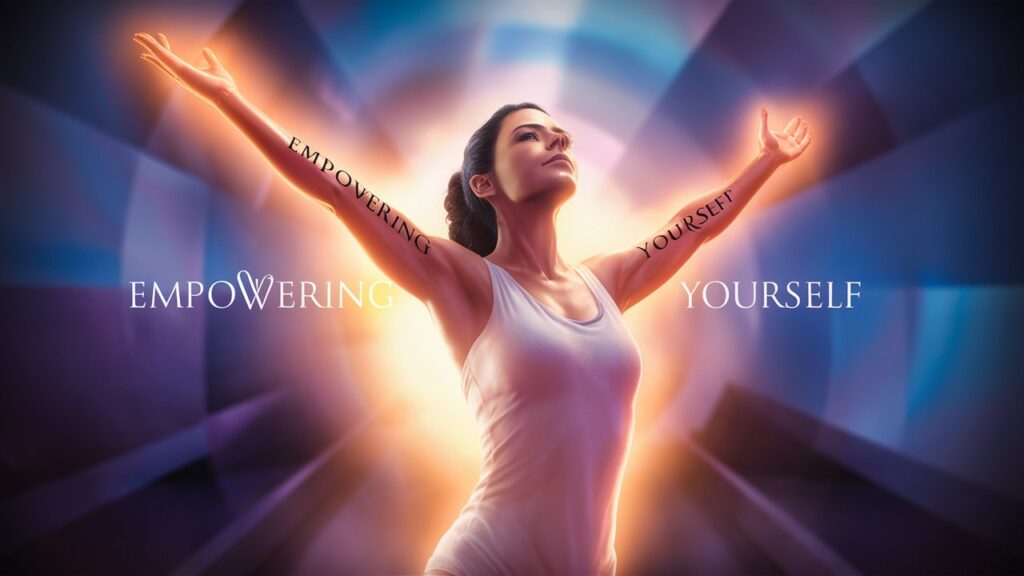
Embracing Ownership of Your Body: Reclaiming Agency and Empowerment
At the heart of bodily autonomy lies the concept of ownership – the inherent right to make decisions about our own bodies. By reclaiming agency over our physical selves, we assert our right to autonomy and empowerment. This ownership extends beyond the realm of physical health and encompasses all aspects of our lives, from relationships to self-expression. By embracing bodily autonomy, we embrace our power to shape our own destinies and live according to our own values and desires.
Cultivating Compassion and Respect for Others: Advocating for Bodily Autonomy
In advocating for bodily autonomy, it is essential to recognize and respect the autonomy of others. Just as we seek to assert control over our own bodies, we must also honor the rights and choices of those around us. This includes respecting boundaries, seeking consent, and advocating for the rights of marginalized communities. By fostering a culture of compassion and respect for bodily autonomy, we create a world where individuals are free to live authentically and without fear of judgment or coercion.
Continuing the Journey: Nurturing Bodily Autonomy for Lifelong Growth
The journey of personal development is ongoing, and nurturing bodily autonomy is a lifelong practice. As we continue on this journey, may we continue to deepen our understanding of bodily anatomy and its profound significance in our lives. May we embrace our power to reclaim agency over our physical selves and advocate for the rights of all individuals to live authentically and with dignity. And may we continue to foster a culture of compassion, respect, and empowerment, where bodily autonomy is valued and celebrated as a fundamental human right.
Empowering Yourself through Bodily Autonomy
The ability to make choices about our bodies, known as bodily autonomy, is really important for becoming stronger and more confident. When we understand and accept bodily autonomy, we can be true to ourselves, take charge of our bodies, and stand up for others’ rights too. As we keep growing personally, let’s keep supporting bodily autonomy. This way, we can build a world where everyone can live with dignity, respect, and the freedom to make their own choices.

